The Bevica Foundation has impacted society since 1872
Pastor Hans Knudsen was a true philanthropist who created the societal changes he saw necessary - and always in partnership with organisations and people.
The history of the Bevica Foundation begins with a retired priest named Hans Knudsen who, one autumn day in 1872, gathered a small group of influential men at the Royal Shooting Range in Vesterbro in Copenhagen. His primary purpose was to give "people with mobility disabilities the greatest possible independence and independence”. At that time, no one in Danish society had a responsibility to help people with mobility disabilities.
Also, at that time, there was no significant focus on the development of aids, treatments or other measures that could help individuals with disabilties. They were left to their own fate, and if you were unable to fend for yourself, you could only get help through the provisions of the Poverty Act. However, the consequence of receiving poor relief entailed the loss of rights, such as the right to vote.
In other words, as a person with disability, you were heavily dependent on others, and equality and equal opportunities were an unknown phenomenon. However, Hans Knudsen, together with the small group of influential men, succeeded in founding the Society for the Disabled.
Over time, the Society for the Disabled evolved to encompass almost all efforts to provide people with mobility disabilities with optimal opportunities for an equal life.
On this page we have collected some of the foundation's milestones and similarly major upheavals in society.
Hospitals were put in place, and educational institutions and employment projects , as well as assistive devices and reseach were created. Over time many of the Society's activities became a public task and taken over by the Danish state authorities.
The Society for the Disabled, which later became Society and Home for the Disabled (Sahva) and today the Bevica Foundation, was founded on the philosophy of “self-reliance”.
Today, the Foundation focuses on the idea of universal design as a lever to meet Denmark's obligations under the UN Convention on the Rights of Persons with Disabilities (CRPD) and the transversal principle of the UN Sustainable Development Goals (SDG's) to Leave No One Behind.
In the below timeline we have collected the history of the foundation on the left. Relevant societal milestones are collected on the right.


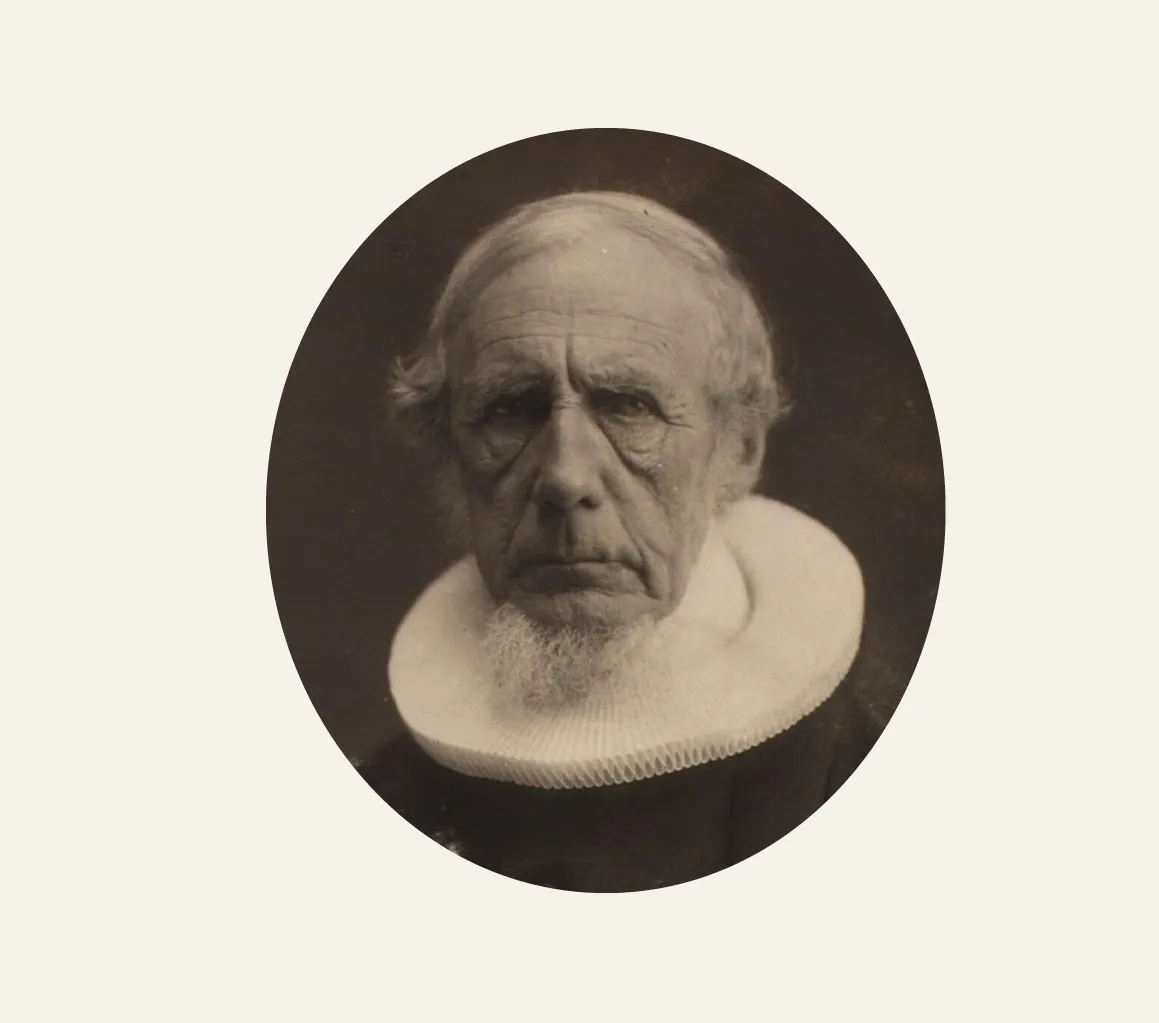
The Society for the Disabled is founded by Pastor Hans Knudsen
Pastor Hans Knudsen, together with a group from the Copenhagen bourgeoisie, founded the Society for the Disabled. From the beginning, cooperations with others were established with the aim of giving the greatest possible autonomy and independence to people with mobility disabilities.

Danish society was unequal
Danish society is characterised by great inequality. Movement disabilities are treated medically and considered primarily as a problem of the individual. There was no help to gain from the community for people with disabilities at that time.

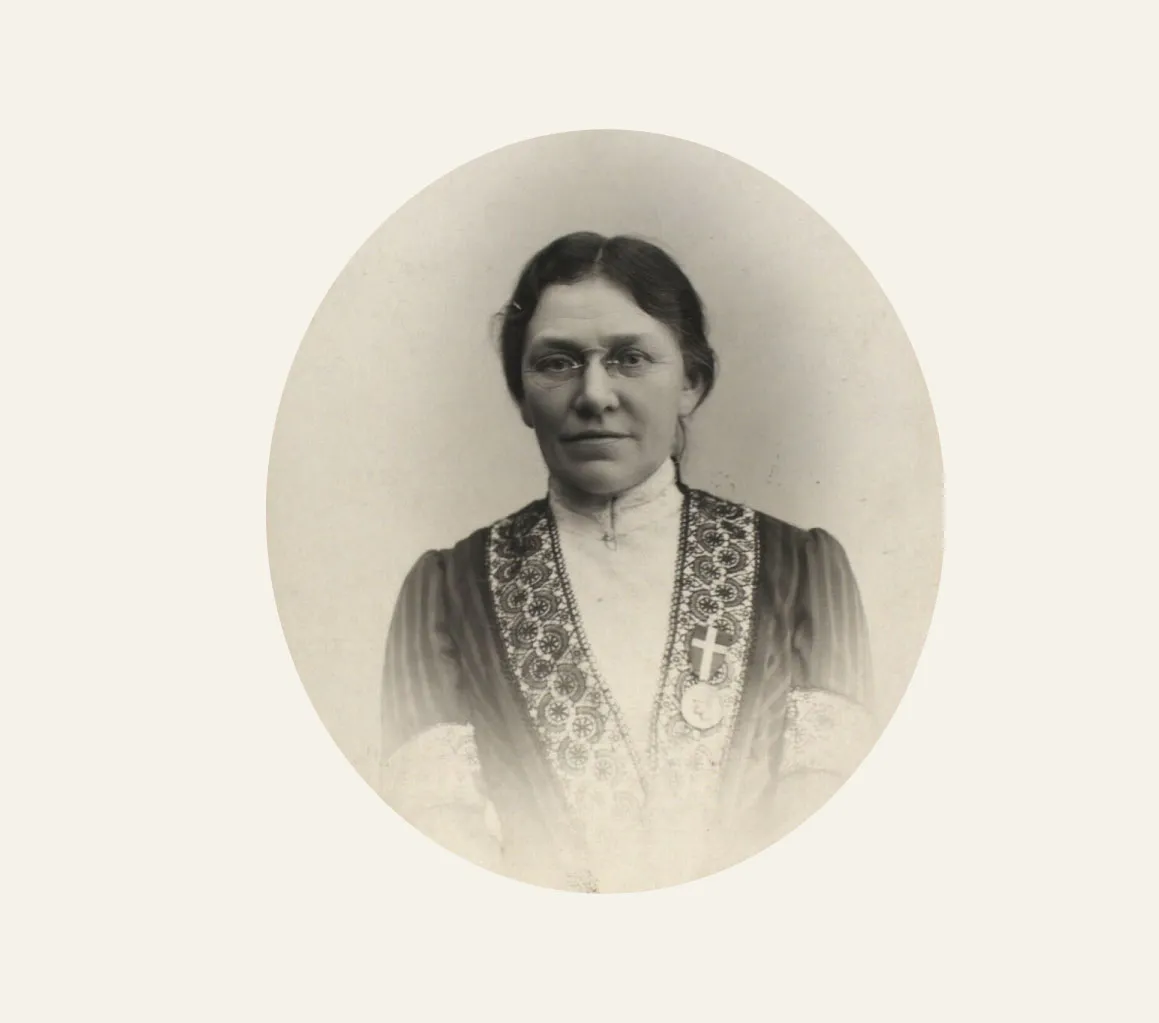
Johanne Petersen comes to the Society for the Disabled
Early on it was established that education was as important as treatment, and in 1875 Johanne Petersen came to help. Over the years, until her death in 1922, she carries important work and is central to further development. Among other things, she is behind a number of schools and workshops that train children and adults in skills, enabling them to live an self-reliant and independent life. Johanne Petersen also started the Home for the Disabled 1893 — partly funded by her own money.

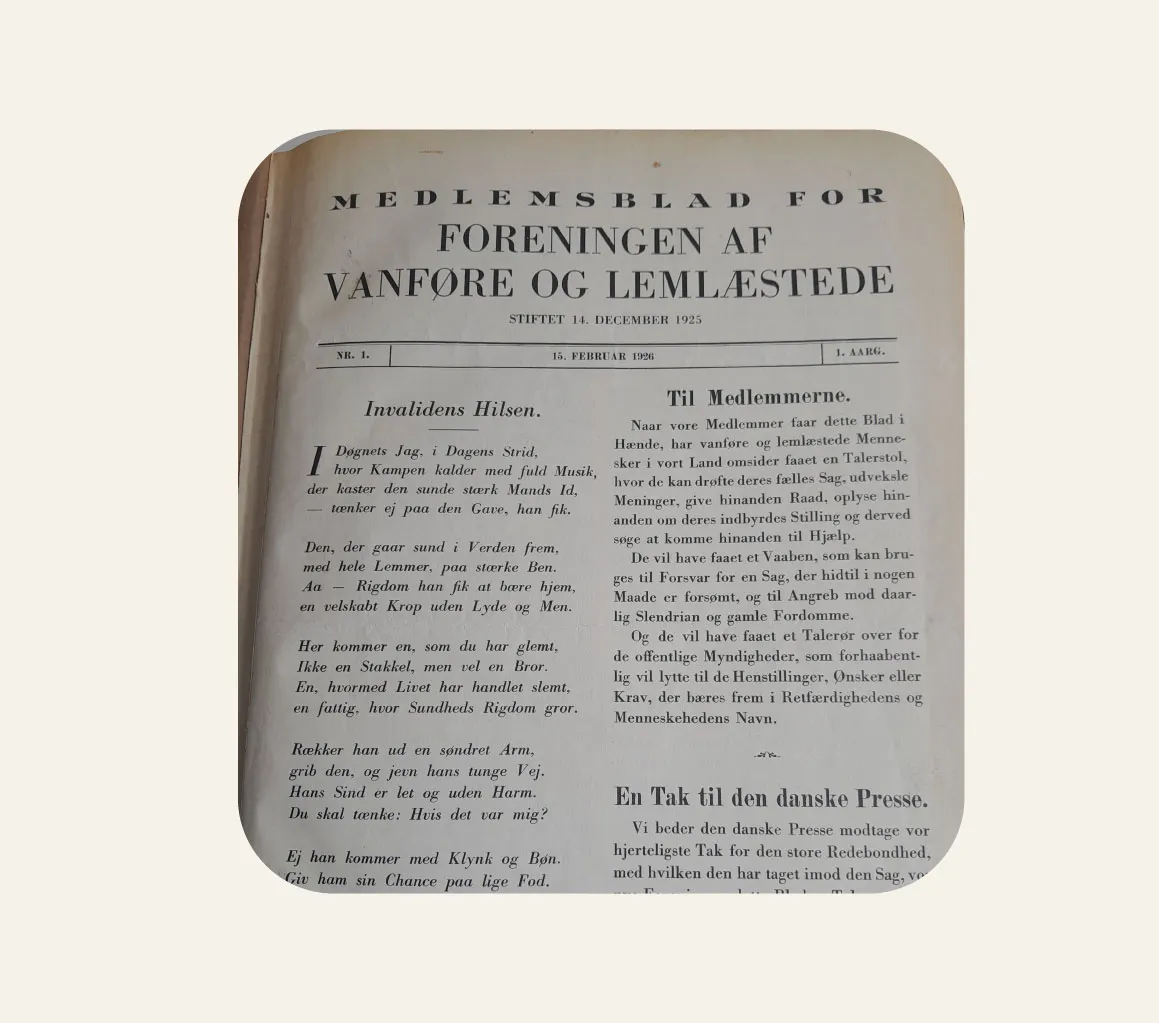
The disabled get their own organisation
In September 1925, the Organisation of the Physically Disabled was founded as an interest organisation for the disabled. The aim was to make visible the disabled in society. Over the years, the organisation has been of great importance to the disability movement in Denmark. Today, the organisation exists under the name of Dansk Handicap Forbund. Since its inception, close ties have been maintained with the Society and the Home for the Disabled, and the Dsnk Handicap Forbund continues to be represented on the foundation's board with one seat.

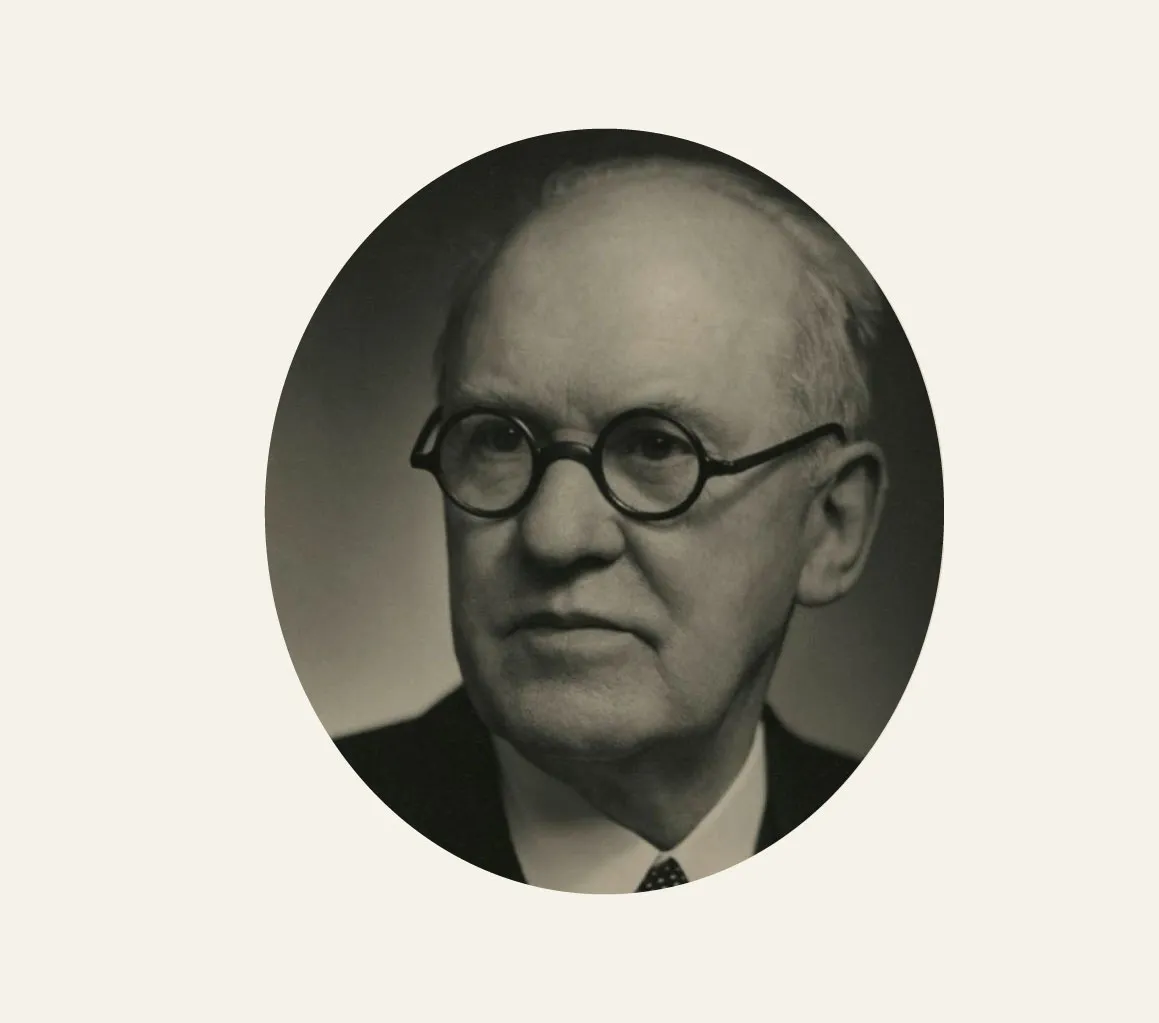
The state takes over
Before 1933, there was no real or organised care for the disabled on a state level. With the Social Reform of 1933, however, it becomes a state duty to provide treatment for people with disabilities, and the framework for assistance is considerably expanded. The Society and the Home for the Disabled, as the foundation is now called, becomes recognised by the state and is asked to take up a number of development and operational tasks from the authorities.


Denmark struck by the polio epidemics
At the beginning of the 1950s, Denmark was struck by serious polio epidemics, especially affecting children. Due to the lack of facilities for the treatment of the affected children, the Society and the Home for the Disabled buys a former seaside hotel in Hornbæk, Denmark, and convert it into a hospital for polio patients. Many years later, the place comes to serve as rehabilitation for people with spinal cord injuries run by the Danish Regional Authorities.


Geelsgårdskolen is founded
Due to high demand for the Society and Hjemmet for the Disabled educational offers, a modern school building was built in 1955. It was specifically designed for children with disabilities. Today Geelsgårdskolen is run by the Danish Regional Authority.

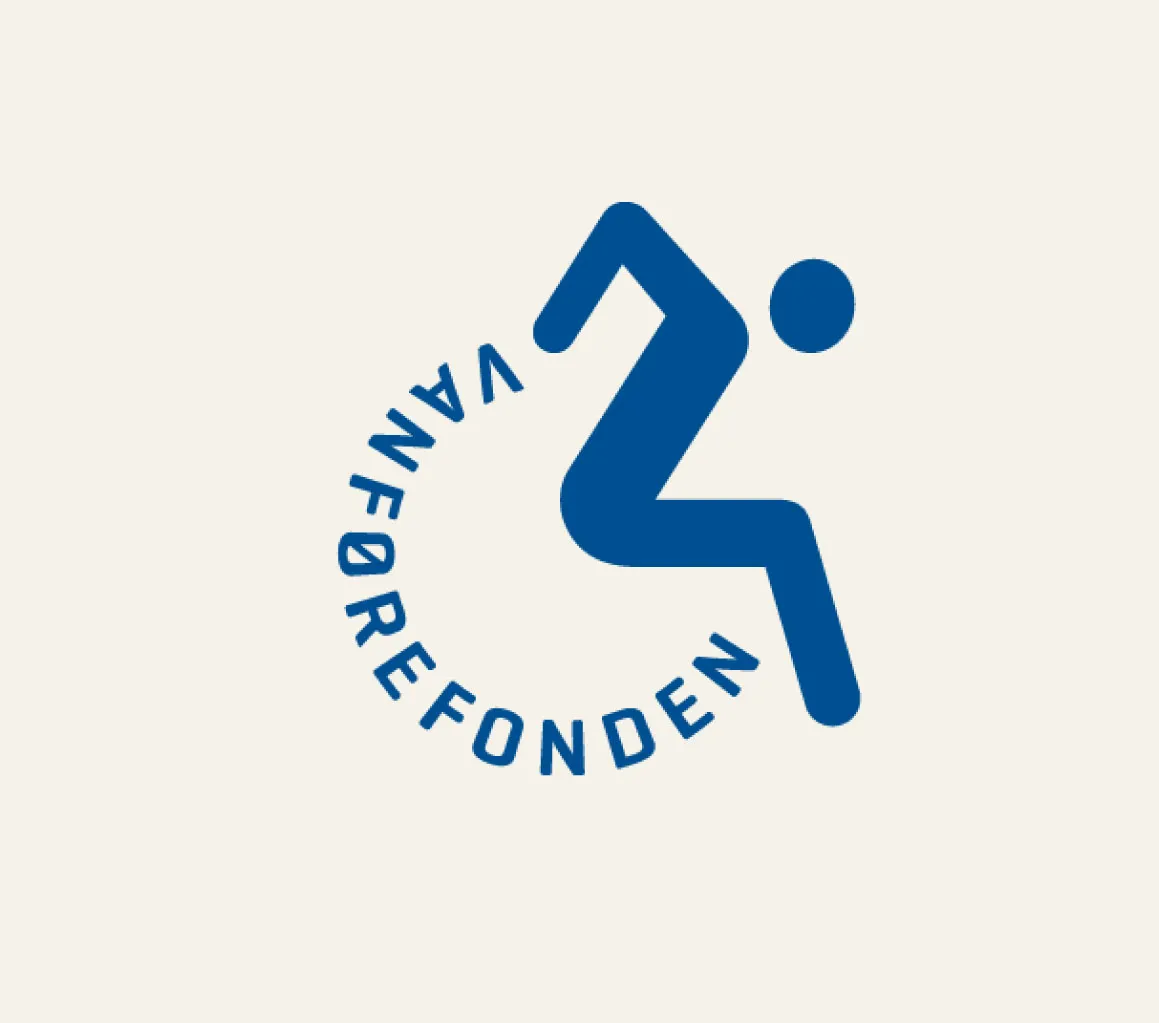
Vanførefonden is founded
With the aim of “supporting efforts to help people with disabilities in Denmark to the extent that such assistance is not provided by the public authorities”, Vanførefonden is established in May 1955. The then chairman of the Society and the Home for the Disabled had a seat in the working group that did the ground work leading to the foundation of Vanførefonden.

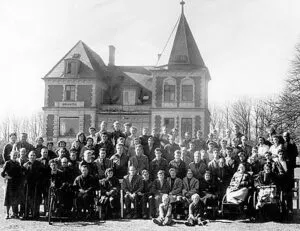
Egmonthøjskolen sees the light of day
In 1956, the folk high school Egmonthøjskolen was established in buildings acquired from the Society and the Home for the Disabled. The buildings were completely inaccessible to people in wheelchairs, which is why a new and highly accessible college was inaugurated in 1961. The folk high school has since been expanded in many stages and today it accommodates 200 pupils with and without disabilities.


Trust deeds for Hans Knudsen's Medal are instituted
The medal was first granted to the former Minister of Justice in Denmark, K. K. Steincke. It was later replaced by the Bevica Foundation's Accessibility Award in 2010.


Municipal reform hands over the special care unit to counties and municipalities
With the municipal reform of 1970, special care for people with disabilities is outsourced to counties and municipalities. In time, the Society and the Home for the Disabled transitions hospitals, clinics and schools to the Danish public authorities.

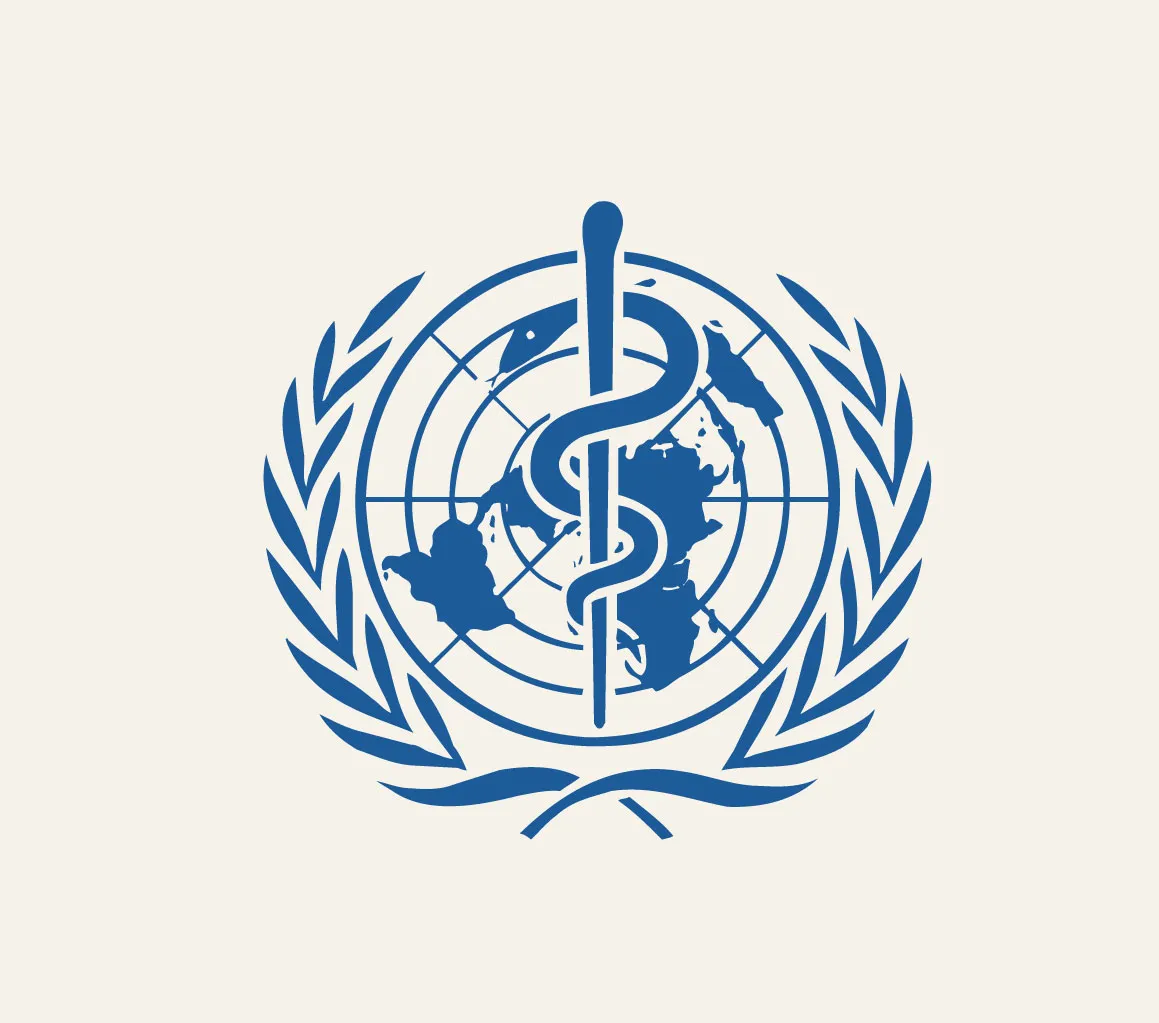
The idea that disability arises when inpairment meets outside barriers is gaining ground
The idea that a disability arises when impairment experience outside barriers is institutionalized as the WHO adopts an international classification of disability and disability, which dictates that disability = impairment + barriers. In doing so, they take a step away from the medical understanding of disability, which is focused on fixing the problems the disability presents to the individual.


Ron Mace defines universal design
American architect and wheelchair user Ron Mace defines the idea of universal design that later becomes a central focus of the Bevica Foundation. The original definition of the term reads: Universal design [is] the design of products and environments to be usable by all people, to the greatest extend possible, without adaptation or specialized design.” Together with a number if experts in the field, Mace later develops the concept into the 7 principles and 8 objectives of universal design.

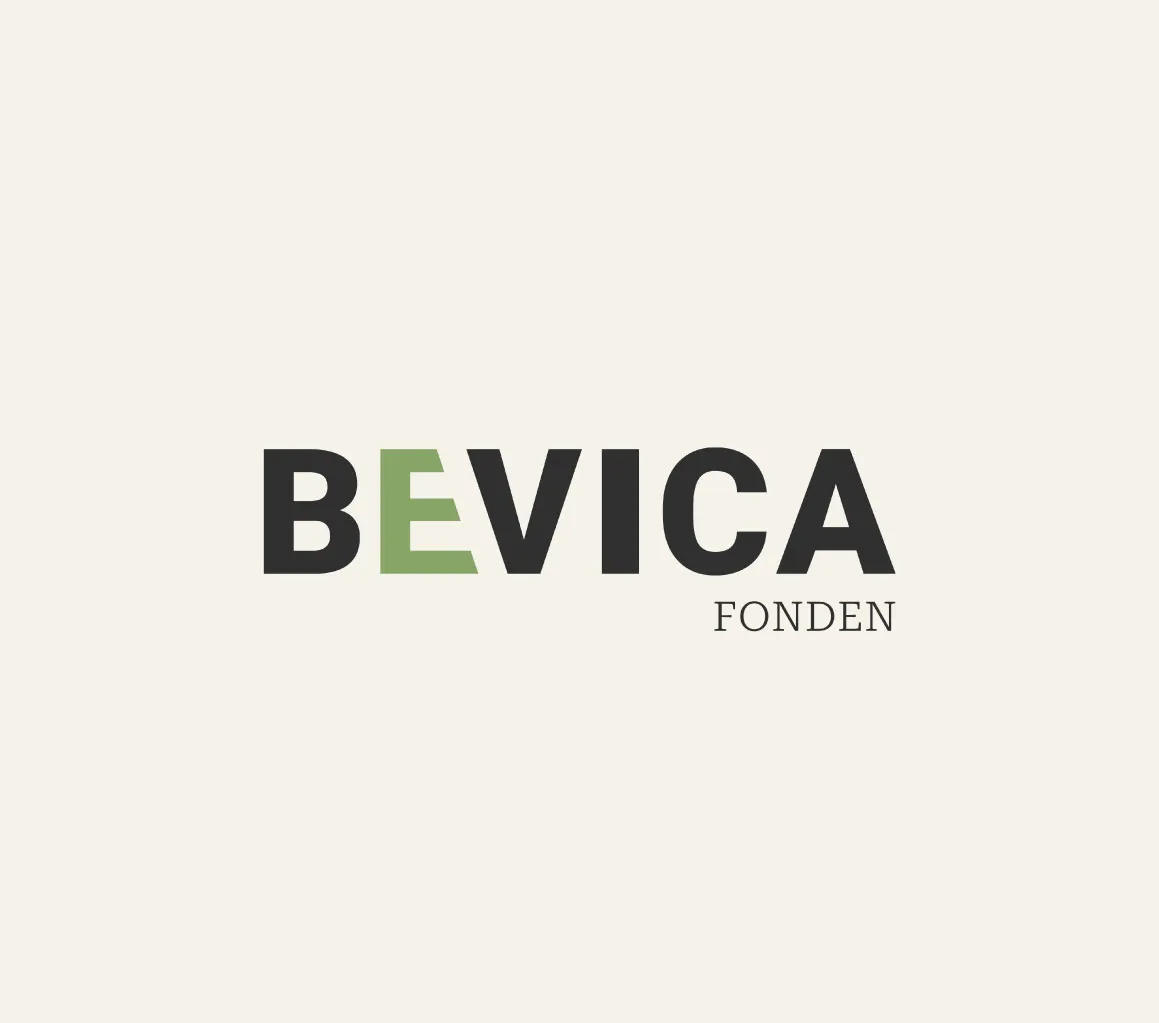
The Society and the Home for the Disabled becomes the Bevica Foundation
The foundation divests the primary business of Sahva A/S and changes its name from the Society and the Home for the Disabled to the Bevica Foundation. The Fondation's main activity is the distribution of funds to projects that enhance the quality of life of people with reduced mobility. The Foundation's activities are primarily application-driven.

Denmark ratifies the UN's Convention of the Rights of Persons with Disabilities
Denmark ratifies the UN Convention on the Disability of Persons with Disabilities and thus undertakes, among other things, to “promote research and development in universally designed goods, offers, equipment and facilities”. The explicit requirement of the Conventionto develop and use universal design will later become a fundamental part of the Bevica Foundation's activities. The ratification of the CRPD is also a breakthrough for the the idea that disability arises when impairment meets outside barriers.


The Bevica Foundation's Accessibility Award is awarded for the first time
The foundation established the Bevica Foundation's Accessibility Award in 2010. At the same time, Hans Knudsen's Medal, which was established by the Society and the Home for the Disabled in 1961, is terminated. The Accessibility Award was first granted in 2011 to then-mayor of Høje-Taastrup Michael Ziegler. The award was terminated again in 2019 after careful consideration. In 2021, the Bevica Scholarship Programme was established as a result of that process.

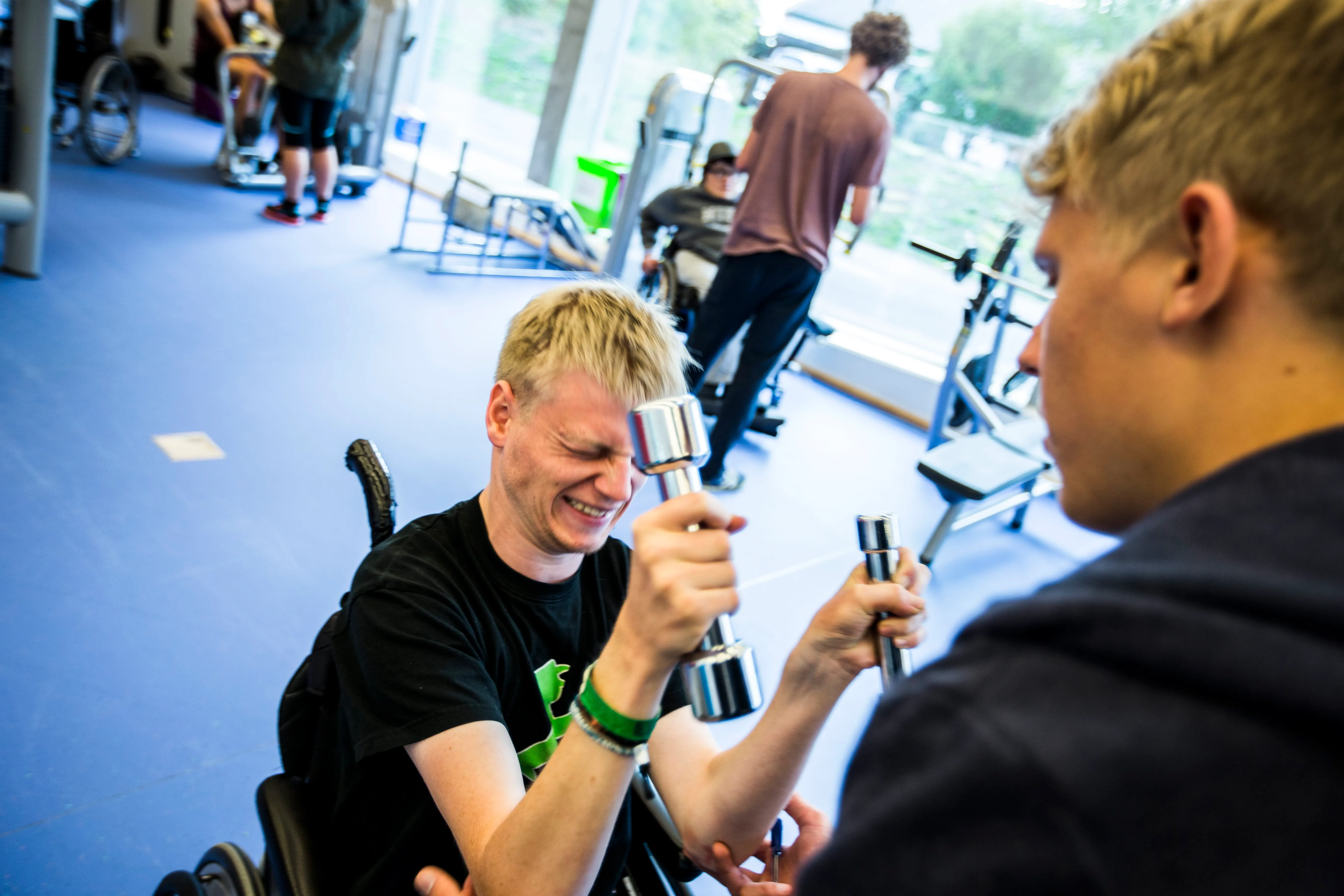
The Bevica Foundation tightens its strategy
The Bevica Foundation's strategic efforts is tightend and now revolve around three themes: Work, Health and Accessibility.


A new way of working
As a result of the work of the past year, it is decided that the Foundation's efforts should be problem-driven, proactive and in partnership with relevant organisations and knowledge institutions. In this context, it is decided that the fund will no longer be open for applications and the first steps towards a strategic partnership with the Royal Danish Academy — Architecture, Design, Conservation is taken. The partnership is finalised the following year and becomes a role model for the subsequent partnerships with DTU, Kolding School of Design and AAU Innovation the following years.

The Royal Danish Academy and the Bevica Foundation enter into partnership
The Bevica Foundation and the Royal Danish Academy of Architecture, Design, Conservation enters into a strategic partnership with the aim to implement accessibility and universal design in research and teaching focusing on people with mobility disabilities.

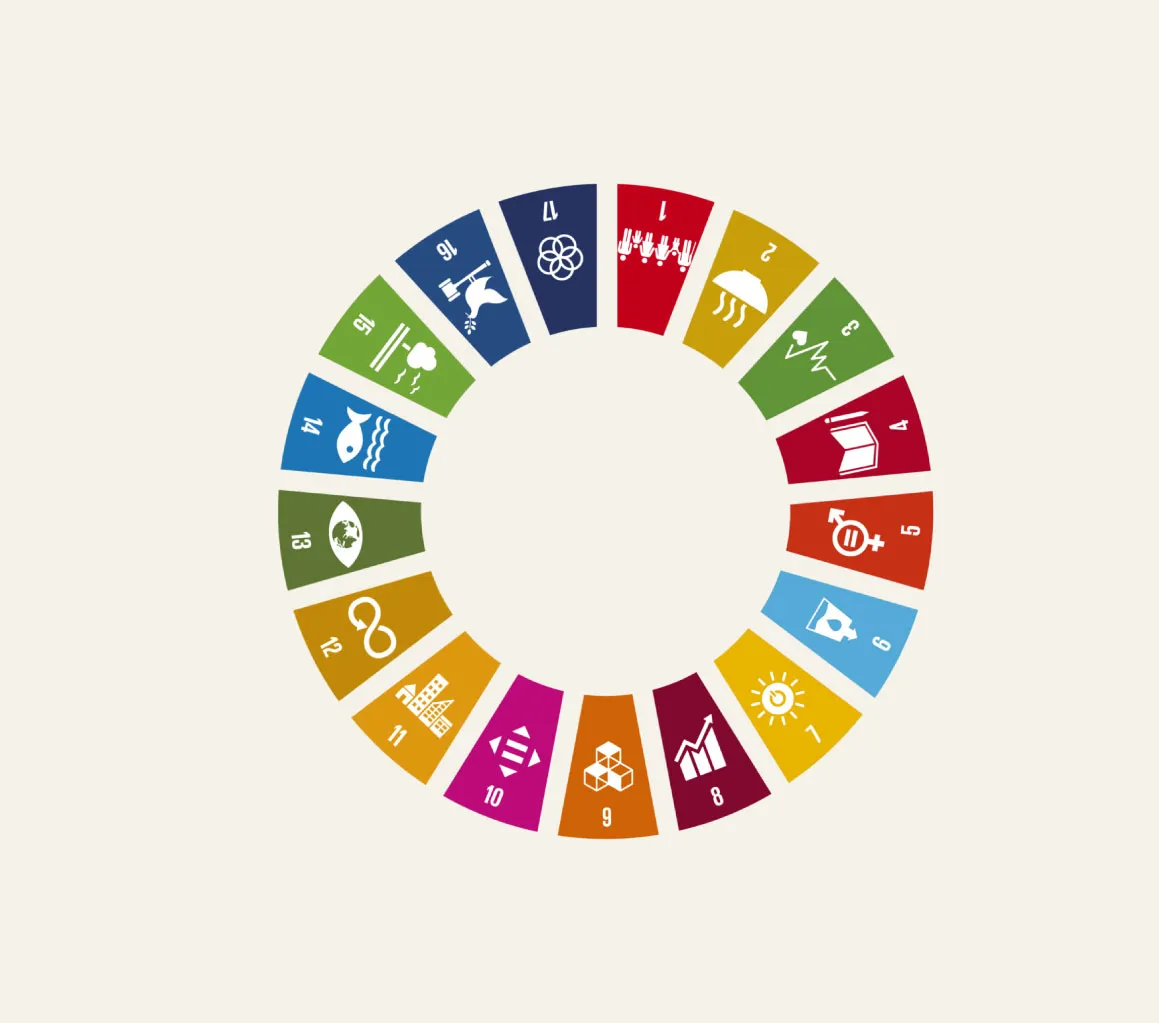
The UN Sustainable Development Goals become a common benchmark
The UN launches the 17 Sustainable Development Goals (the SDG's) and the cross-cutting principle to Leave No One Behind. Denmark, together with the other countries of the UN, commits itself to actively work towards achieving the objectives in the SDG's. They subsequently become important guidelines for the Bevica Foundation's strategic work.

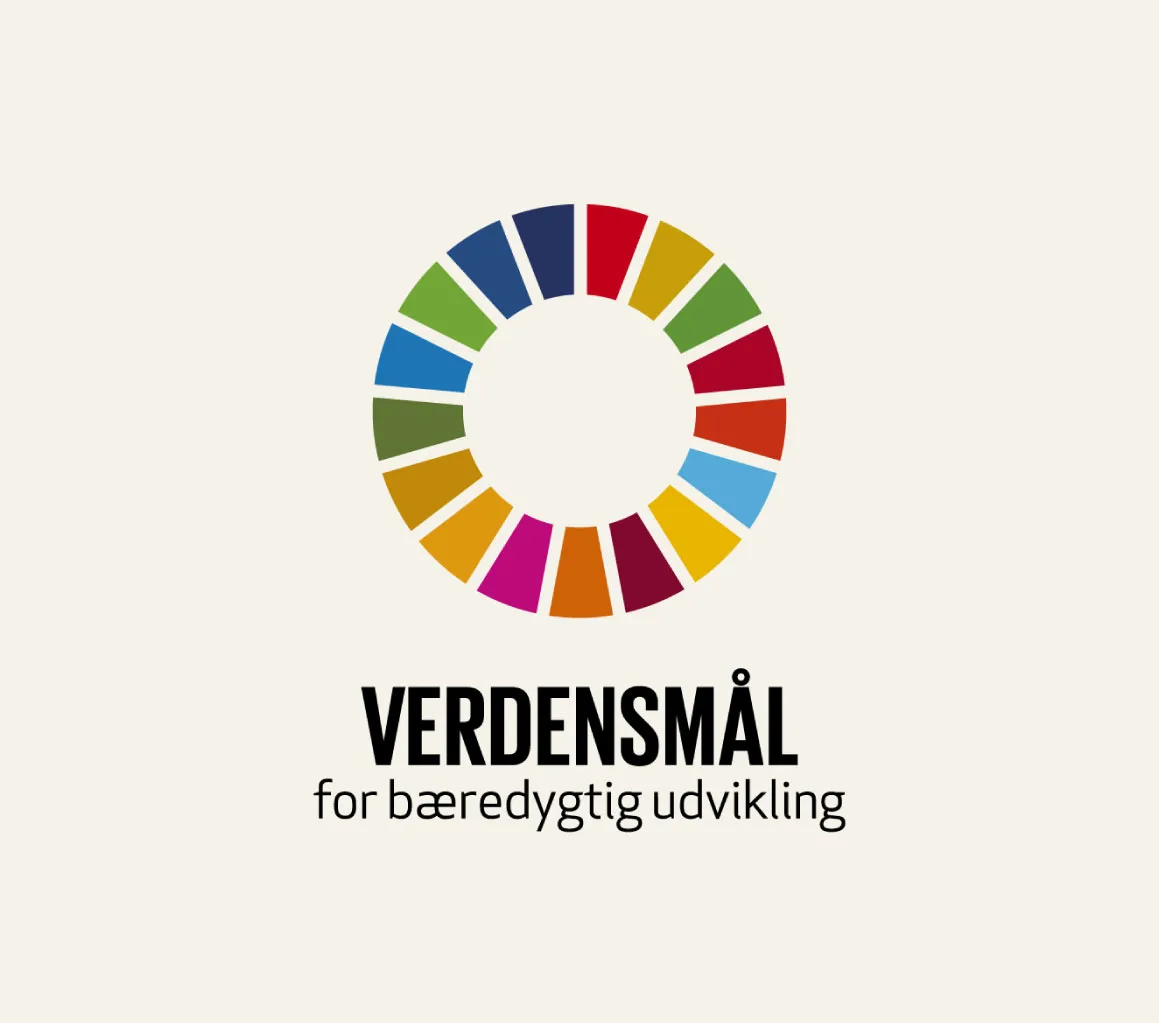
SDGs and universal design become central to the Bevica Foundation
The Transversal Principle of the World Goals Leave No One Behind becomes a key and key value in the Fund's strategic work: it is decided at the same time that the Fund, in its work with other parties, can embrace all persons with disabilities rather than a slightly narrower focus on mobility, which, however, remains the Fund's primary target audience. The decision is entirely in line with the philosophy behind universal design's focus on the varying functional abilities of the body throughout a lifetime.

Universal Design Hub is established
The Bevica Foundation's efforts are concentrated in three main tracks, which are based on the Leave No One Behind agenda of the world goals and universal design, and the Universal Design Hub and the research network will be established. The aim is to strengthen the interdisciplinary field of research on universal design, disseminate knowledge and make universal design relevant. The target audience of the work is those who set the framework for the life lived: politicians, scientists, engineers, architects, designers, students, craftsmen, opinion-makers and more.


The voices of young people living with disability become take centre stage
The Bevica Foundation enters into a 5-year partnership agreement with the interest organisation Danish association of Youth With Disabilities (SUMH). With it, the young people are obliged to bring their lived experiences to the Foundation and its other partners partners to qualify the work and bring in new perspectives.

The Bevica Foundation actively initiate public conversation
The Bevica Foundation actively contributes to public discourse on universal design, blind spots, and ableism.

Bevica Foundation celebrates 150th anniversary
The Bevica Foundation celebrates its 150th anniversary shedding light on our view of the human. In connection with the anniversary, the Bevica Scholarship Programme is launched, running for the first time in 2023-2024. The programme replaces the Bevica Foundation's Accessibility Award, which was granted for the last time in 2019. The Bevica Scholarship Programme is granted every second year celebrating the finalist and winners in a grant award show.

Bevica Scholarship Programme gets underway for the first time
The first winners of the Bevica Scholarship Programme, launched in conjunction with the foundation's anniversary in 2022, are sent out into the world. The aim of the programme is to generate knowledge, activate the Foundation's interdisciplinary research network, create new collaborations with educational institutions and support the Foundation's strategy of ensuring universal design as a fundamental topic in the curricula of the country's educational institutions.

Denmark faces criticism from the UN
The United Nations Committee on Disability issues a number of criticisms of Denmark and the conditions of people with disabilities. Among other things, the Committee specifically criticizes Denmark's implementation of universal design in services and public transport. In addition, the Committee criticises the level of knowledge in the civil service and the general understanding and attention to the rights of persons with disabilities in the population. In light of the criticism, the Committee recommends, among other things, that Denmark disseminate and promote the understanding of universal design.